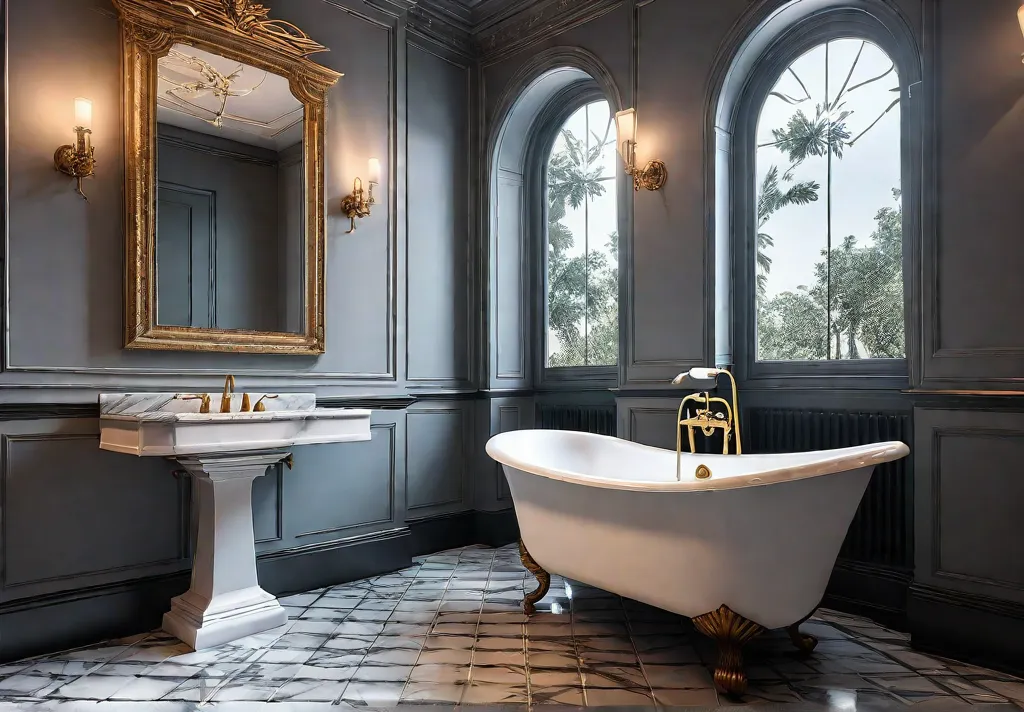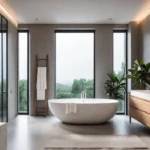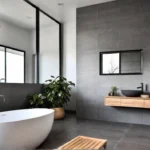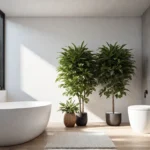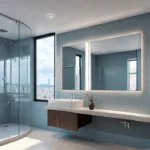Have you ever stepped into a luxurious hotel bathroom and felt transported to a bygone era of opulence and grandeur? That timeless allure is the essence of classic bathroom design – a harmonious blend of vintage charm and modern indulgences.
Picture this: a freestanding clawfoot tub beckoning you to soak away your worries, ornate tilework creating a visual feast, and antique accents evoking the stories of a life well-lived. Classic bathroom design is more than just aesthetics; it’s an immersive experience that awakens the senses and calms the soul.
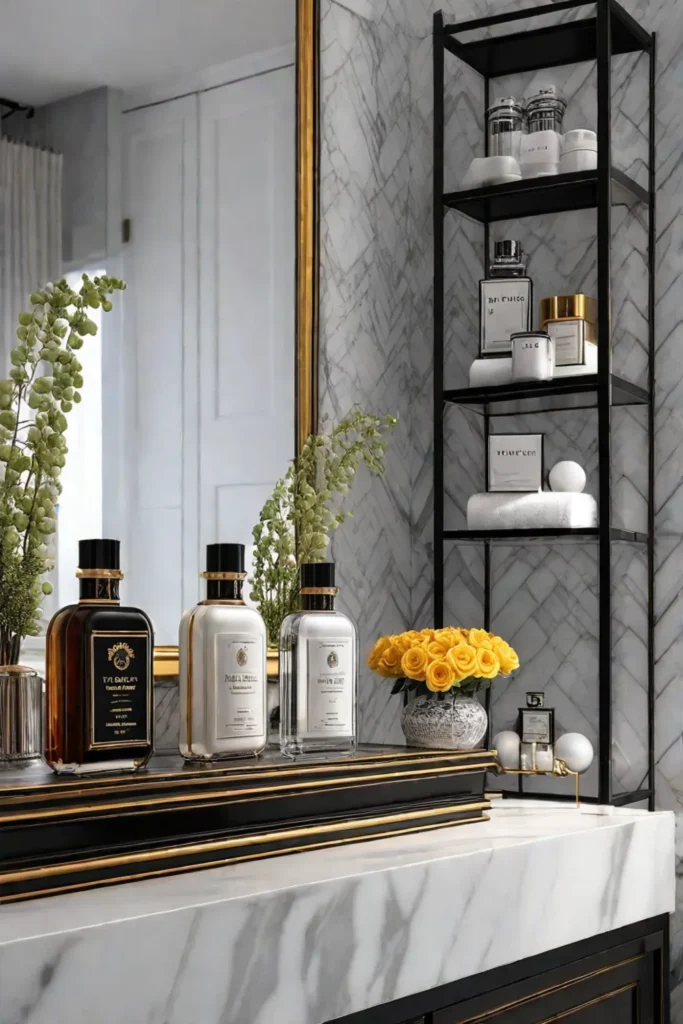
So, how can you infuse your sanctuary with the enduring elegance of classic design? Let’s delve into the key elements that define this timeless aesthetic, inspiring you to create a tranquil oasis that seamlessly intertwines the past and present.
Vintage Fixtures: Timeless Treasures for Modern Spaces
Vintage fixtures are the crown jewels of classic bathroom design, imbuing a space with unparalleled character and charm. Imagine the allure of a clawfoot tub, its graceful curves and ornate feet evoking the grandeur of a bygone era. Or perhaps a pedestal sink, its delicate lines and intricate details harkening back to when craftsmanship was an art form.
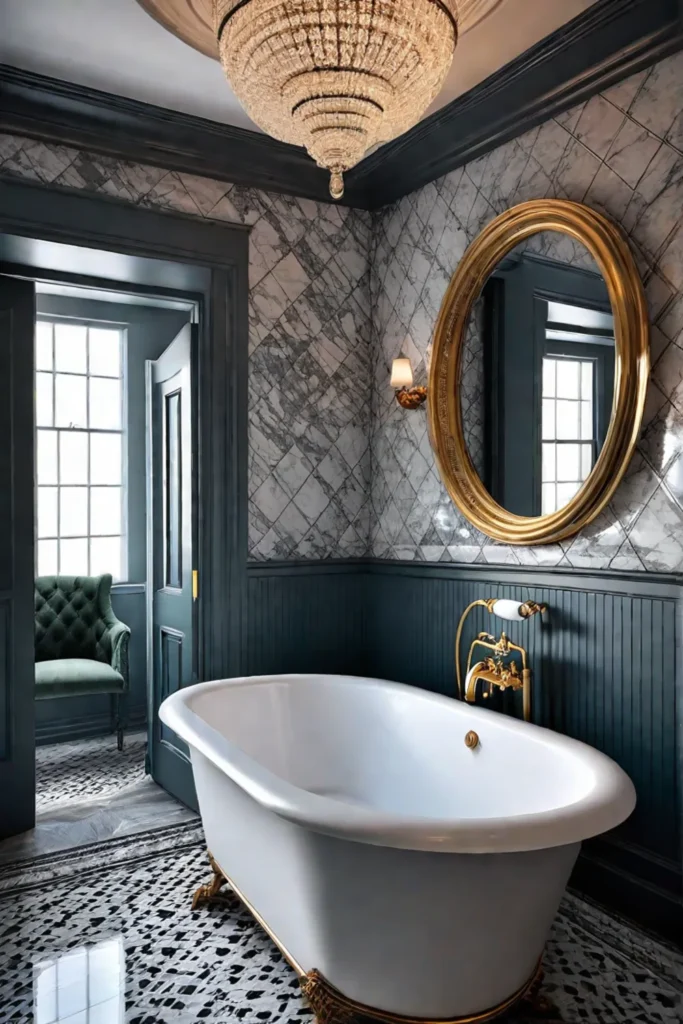
Incorporating vintage fixtures into your bathroom design is like adding a touch of history to your modern sanctuary. These pieces serve as stunning focal points and offer a glimpse into the past, inviting you to appreciate the artistry and craftsmanship of a bygone era.
But fear not; embracing vintage fixtures doesn’t mean sacrificing modern comforts. With a little creativity and the right balance, you can seamlessly blend the old and new, creating a space that celebrates both the past’s charm and the present’s conveniences.
Imagine a sleek, contemporary shower enclosure adorned with a vintage brass showerhead or a modern vanity complemented by antique sconces. It’s all about finding the perfect harmony between the old and the new, allowing each element to shine while creating a cohesive and inviting space.
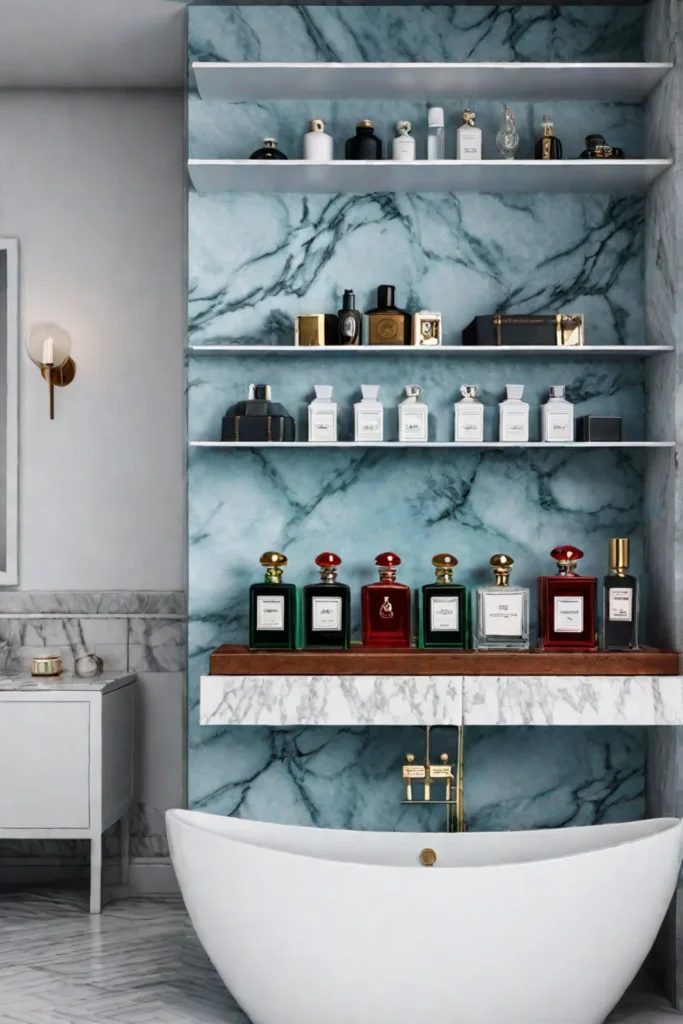
Of course, maintaining and restoring vintage fixtures requires a delicate touch and a deep appreciation for their history. Whether sourcing authentic pieces or opting for high-quality reproductions, investing in proper care and restoration is key to preserving the beauty and integrity of these timeless treasures.
Traditional Materials: Enduring Elegance Carved in Stone
Traditional materials like marble, tile, and natural stone are the epitome of enduring elegance when it comes to classic bathroom design. These materials have graced the grandest bathrooms throughout history, their timeless beauty and durability standing as a testament to their enduring appeal.

Picture yourself surrounded by the luxurious veining of Carrara marble, its cool surface exuding a sense of tranquility and sophistication. Or perhaps you envision the warm embrace of natural stone tiles, their earthy tones, and organic textures evoking a sense of harmony with nature.
Incorporating traditional materials into your bathroom design is like weaving a tapestry of timeless beauty and durability. These materials add a touch of luxury and offer a sense of permanence and solidity that can only be achieved through the passage of time.
But traditional materials are more than just aesthetically pleasing – they’re also incredibly functional and practical. Marble, for instance, is renowned for its heat resistance and easy maintenance, making it an ideal choice for countertops and flooring. On the other hand, Tile offers a wide range of design possibilities, from intricate mosaics to sleek subway patterns, allowing you to create a truly unique and personalized space.

When incorporating traditional materials into your bathroom design, the key is finding the perfect balance between historical accuracy and modern functionality. Whether you opt for a classic marble vanity or a contemporary tile shower, the key is to create a harmonious blend that celebrates the beauty of the past while embracing the conveniences of the present.
Period-Specific Design: A Journey Through Time
For those seeking to truly immerse themselves in classic bathroom design, period-specific styles offer a captivating journey through time. From the opulent grandeur of the Victorian era to the sleek sophistication of Art Deco, each historical period boasts unique design language and aesthetic sensibilities.

Imagine entering a Victorian-inspired bathroom, where intricate tilework, ornate fixtures, and rich textiles transport you to a world of indulgent luxury. Or perhaps you’re drawn to the streamlined elegance of an Art Deco space, where geometric patterns, polished surfaces, and bold accents create a captivating blend of modernity and timeless style.
Recreating a period-specific design requires a deep understanding of the era’s aesthetic principles and meticulous attention to detail. From the choice of materials to the placement of fixtures, every element must work in harmony to capture the essence of the historical period.
However, achieving an authentic period-inspired look doesn’t mean sacrificing modern comforts and functionality. With thoughtful planning and a skilled design eye, you can seamlessly blend historical accuracy with contemporary amenities, creating a space that truly stands the test of time.

Whether you opt for a full-scale renovation or incorporate period-specific elements as accents, the key is balancing historical authenticity and personal expression. After all, a classic bathroom design should transport you to a bygone era and reflect your unique style and personality.
Antique Accents: Curated Charm and Character
No classic bathroom design would be complete without the addition of carefully curated antique accents. These cherished pieces imbued with history and character, serve as the finishing touches that elevate a space from merely beautiful to truly captivating.

Imagine the warm glow of a vintage lighting fixture, its intricate metalwork casting a soft, ambient light that instantly transports you to a bygone era. Or perhaps you’re drawn to the timeless allure of an antique mirror, its ornate frame and aged patina adding depth and character to the space.
Incorporating antique accents into your bathroom design is like adding layers of storytelling and personality. Each piece carries a unique history, inviting you to imagine the stories it could tell if only walls could talk.
However, sourcing and caring for antique bathroom accessories is an art form. From scouring antique markets and estate sales to carefully restoring and preserving these treasured pieces, the process requires a keen eye, patience, and a deep appreciation for the beauty of the past.

When incorporating antique accents into your bathroom design, the key is to balance curated charm and cohesive aesthetics. These pieces should complement the overall design and serve as conversation starters, inviting guests to appreciate the intricate details and rich history that each piece embodies.
Whether you opt for a single statement piece or a carefully curated collection, antique accents can transform a bathroom from a functional space into a true sanctuary. In this place, the past and present converge in perfect harmony.
Conclusion
Classic bathroom design is more than just a collection of vintage fixtures and traditional materials; it celebrates timeless elegance and enduring craftsmanship. By embracing the key elements of this enduring aesthetic, you can create a sanctuary that transcends fleeting trends and stands as a testament to the enduring beauty of the past.

So, whether you’re drawn to the luxury of a Victorian-inspired space or the sleek sophistication of Art Deco, remember that the true essence of classic bathroom design lies in the harmonious blend of historical inspiration and modern sensibilities.
Embrace the charm of vintage fixtures, revel in the luxurious beauty of traditional materials, and let antique accents weave their stories throughout your space. Above all, approach your bathroom design with a reverence for the past and a vision for the future, creating a timeless sanctuary that will inspire and delight future generations.
